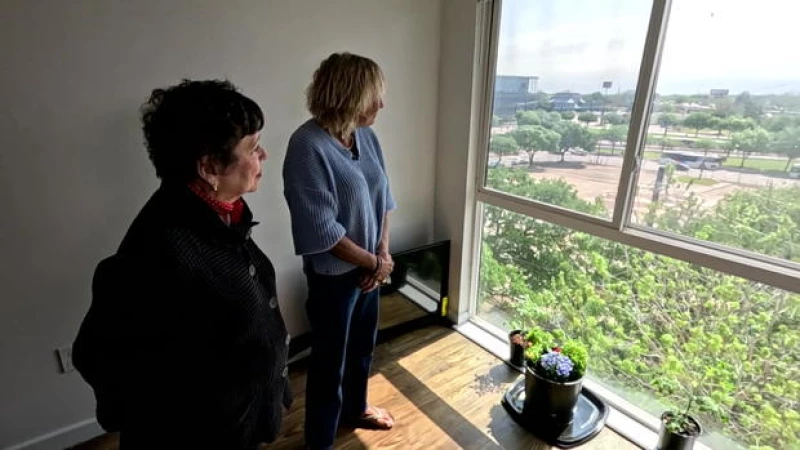Julie Blow, a 62-year-old Army veteran, faced a series of unfortunate events that led her to homelessness - serious kidney issues, a fall resulting in the loss of sight in one eye, and two surgeries. Unable to work and running out of money, Blow found herself without a place to call home.
But now? She has an apartment, complete with brand-new furniture donated by a local retailer and a TV. While the 320-sq.-ft. studio may not be extravagant, for Blow, it's a significant upgrade from the tent she had been living in. "I feel like a teenager, I am that happy!" she exclaimed. "You know, before all the stuff happens to you in life and you get jaded? I feel like a teenager!"

For Houston, this success story is further proof that its approach to addressing homelessness is effective. Kelly Young, the head of Houston's Coalition for the Homeless, believes that their model is one that the rest of the nation should adopt. "We were one of the worst in the nation to begin with, in 2011, 2012," Young stated. "And now, we're considered one of the best."
So, what changed? In 2012, the city fully embraced the concept of "Housing First." Since then, homelessness has decreased by 63% in the greater Houston area, with over 30,000 individuals finding housing.
Housing First means prioritizing getting the unhoused into their own apartments, subsidizing their rent, then providing the services needed to stabilize their lives – not fixing the person first; not just adding more shelter beds.
"Our natural instinct when we see homelessness increasing is to hire more outreach workers and to build more shelter beds," said Mandy Chapman Semple, the architect of Houston's success story. She now advises other cities on how to replicate it, among them Dallas, New Orleans, and Oklahoma City. "The idea that if you have no permanent place to live, that you're also going to be able to transform and tackle complex mental health issues, addiction issues, complex financial issues? It's just unrealistic."
- Colorado leaders travel to Houston to gain insight into homelessness
- Pittsburgh looks to Houston's "Housing First" policy in addressing homelessness
In Houston, step one was convincing dozens of unconnected agencies, all trying to do everything, to join forces under a single umbrella organization: The Way Home, run by the Houston Coalition for the Homeless.
So, for example, when outreach coordinators visit a homeless encampment, Jessalyn Dimonno is able to plug everything she learned into a system-wide database, logging in real time where people are staying.
Houston has taken down 127 homeless encampments, ensuring that all occupants had been provided with housing before the dismantling. The Way Home has successfully housed over 750 individuals this year. The city's supply of relatively affordable apartments, coupled with the use of approximately $100 million in COVID aid for rental assistance, has contributed to this achievement.
Houston's key message is clear: the true path to success lies in prioritizing homes rather than simply addressing homelessness.
"What Houston has accomplished serves as a blueprint for other cities to follow, demonstrating that it is indeed possible," remarked Chapman Semple.
For additional information:
Story produced by Sara Kugel. Editor: Carol Ross.
Related articles:
- Addressing the ordeal of homelessness ("Sunday Morning")
- Homelessness on campus ("Sunday Morning")
- California voters approve Prop. 1, ballot measure aimed at tackling homeless crisis
- The fight against homelessness ("CBS Saturday Morning")







